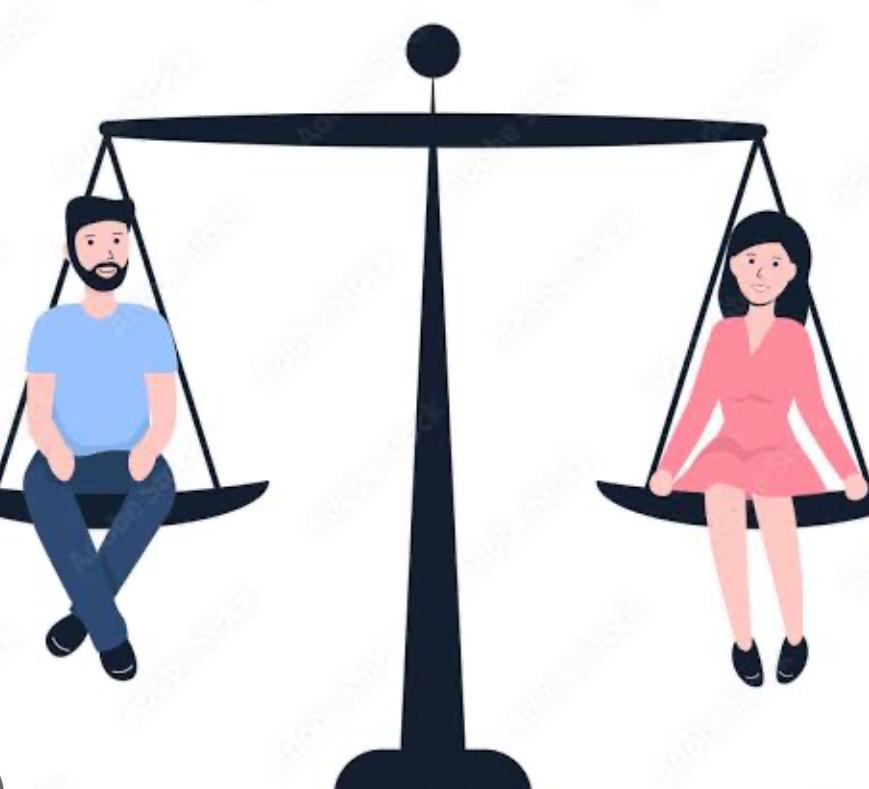Equality, in its simplest form, means that everyone is treated the same, regardless of their background, identity, or circumstances. This principle extends to various aspects of life, including social, economic, and political spheres. While the concept seems straightforward, achieving true equality is a complex and ongoing endeavor. It requires not only legal frameworks that ensure equal rights but also a societal shift in attitudes and practices to dismantle systemic inequalities. The pursuit of equality is a fundamental human aspiration, as it underpins a just and thriving society where everyone has the opportunity to reach their full potential.
One of the most prominent areas where equality is often discussed is gender. Gender inequality persists in many forms, from unequal pay for equal work to limited access to education and healthcare for women and girls. Challenging gender stereotypes and promoting equal opportunities for all genders, including transgender and non-binary individuals, is crucial for creating a more equitable world. This involves not only addressing overt discrimination but also dismantling the subtle biases and societal norms that perpetuate inequality.
Beyond gender, equality encompasses various other dimensions, such as racial equality, economic equality, and equality of opportunity. Racial inequality has deep historical roots, stemming from centuries of colonialism, slavery, and systemic discrimination. Addressing racial inequality requires acknowledging these historical injustices and actively working to dismantle the structures and practices that perpetuate racial disparities. Economic equality, on the other hand, focuses on ensuring that everyone has access to basic necessities like food, shelter, and healthcare, and that there is a fair distribution of wealth and resources. This involves addressing issues like income inequality, access to education and job opportunities, and social safety nets for those who are marginalized or vulnerable.
Equality of opportunity is another crucial aspect, ensuring that everyone has the chance to succeed based on their abilities and efforts, regardless of their background. This means providing equal access to quality education, healthcare, and other resources that enable individuals to reach their full potential. It also involves creating a fair and inclusive society where everyone has the opportunity to participate in the political and economic life of their community.
The pursuit of equality is not merely a matter of social justice; it also has significant economic benefits. Societies with greater equality tend to be more stable, prosperous, and innovative. When people feel valued and included, they are more likely to contribute to their communities, participate in the economy, and drive progress. Conversely, societies with high levels of inequality tend to experience social unrest, economic instability, and a decline in overall well-being.
Furthermore, equality is essential for creating a just and democratic society. When some members of society are marginalized or excluded, it undermines the legitimacy of democratic institutions and processes. True democracy requires that all citizens have an equal voice and the ability to participate in shaping their society. This includes ensuring that everyone has access to information, the ability to vote, and the opportunity to run for office.
However, achieving equality is not without its challenges. Deep-seated prejudices and biases, both individual and systemic, can be difficult to overcome. Powerful vested interests may resist efforts to promote equality, as they may perceive it as a threat to their own status or privilege. Furthermore, achieving equality often requires significant investments in social programs, education, and infrastructure, which can be politically challenging.
Despite these challenges, the pursuit of equality remains a vital goal. It is a moral imperative, a matter of social justice, and a prerequisite for a thriving and sustainable society. By working together to dismantle inequalities and create a more just and inclusive world, we can ensure that everyone has the opportunity to live a fulfilling and meaningful life. This requires ongoing efforts to challenge discrimination, promote equal opportunities, and foster a culture of respect and inclusion. It also requires a willingness to confront uncomfortable truths about the historical and systemic injustices that continue to perpetuate inequality. Only through sustained and concerted action can we hope to achieve a world where equality is not just an ideal, but a reality for all.

